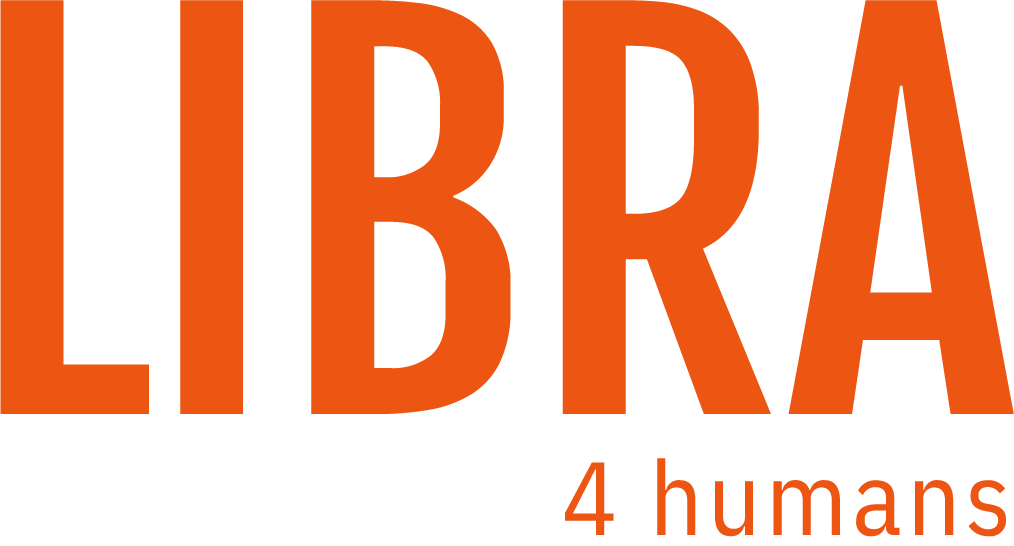Struggling to choose the right keywords for your website? This guide covers how to find keywords for your website that drive traffic and improve your search engine rankings. You’ll learn about the importance of keywords for website optimization, aligning them with user intent, and practical steps to use them effectively.
Introduction to Keyword Research
Keyword research is a cornerstone of any successful SEO strategy. It involves identifying and analyzing the search terms that people use when looking for information online. By understanding these search terms, you can create content that resonates with your target audience and boosts your site’s visibility in search engine results.
The process of keyword research helps you uncover what your potential customers are searching for, allowing you to tailor your content to meet their needs. This not only drives more traffic to your site but also ensures that the visitors you attract are genuinely interested in what you have to offer. In this article, we will delve into the importance of keyword research and provide a step-by-step guide on how to conduct it effectively.
Key Takeaways

Keywords are essential for connecting user searches to relevant content, but focus on broader topics and search intent instead of just exact matches.

Understanding search intent—informational, navigational, commercial, and transactional—can improve keyword selection and enhance conversion rates.

Building a keyword map aligned with your website structure and regularly measuring performance can optimize your SEO strategy and improve visibility.
Why Keywords Still Matter in Modern SEO

Keywords are more than just search terms; they are the bridge between what users are searching for and what your website offers. Think of them as semantic signals that guide search engines to understand the context and relevance of your content. Despite the evolution of search engine algorithms, more keywords and keyword data remain a fundamental component of SEO strategy.
Establishing a solid base for keyword research is crucial to ensure your content aligns with actual user searches and enhances traffic.
Exact-match keyword strategies are outdated. Modern search engines like Google emphasize topic-driven SEO, prioritizing content themes and context over individual new keywords. Given keyword keywords remain important but should align with broader topics and user intent. Additionally, keyword suggestions can enhance the relevance of your content, including insights from google autocomplete.
Understanding the role of keywords in modern SEO also involves recognizing their impact on organic search performance. Keywords help search engines categorize and rank your content, making it more discoverable to users. The right keywords can significantly enhance your site’s visibility, driving organic traffic and improving your keyword rankings.
Instead of stuffing content with popular keywords, effective keyword research identifies relevant keywords that meet your audience’s needs and business goals. This ensures your content is both discoverable and meaningful to users. Additionally, you can utilize free keyword research to enhance your strategy.
Start with Search Intent, Not Just Search Volume
Search intent is paramount in keyword research. Understanding why users have searched helps select the right keywords. The four main types of search intent—informatory, navigational, commercial, and transactional—represent different user journey stages, from gathering information to making a purchase in paid search. Incorporating the search term effectively can enhance this process.
Choosing keywords based on intent rather than just search volume can dramatically improve the quality of your traffic and your conversion rates. For example, targeting keywords with commercial intent can attract users who are closer to making a purchasing decision, while informational keywords can help establish your site as an authority in your niche through effective pay per click advertising Google Ads campaigns.
Keyword tools feature capabilities that help narrow down keyword lists based on search intent, making it easier to target the most relevant terms for your audience.
Aligning content with search intent keeps it visible in Google’s evolving algorithm. Sophisticated search engines prioritize content that matches user intent, improving rankings, user satisfaction, and engagement.
Effectively aligning keywords with search intent involves using tools like Google’s keyword planner and analyzing search results to see what type of content ranks for your target keywords. This helps identify the best keyword opportunities and create audience-focused content using google keyword planner and paid search campaigns.
How to Identify the Right Keywords for Your Website

Building a comprehensive keyword universe tailored to your niche is crucial. Begin with thorough keyword research using tools like Google’s Keyword Planner to generate ideas and gather data. Use a mix of short-tail, mid-tail, and long-tail keywords to cover various search queries.
Prioritize relevance over popularity when selecting most relevant keywords. Align choices with business goals, audience needs, and core offerings. Choose keywords that attract potential customers and engage genuinely interested users.
Using synonyms and related keywords builds semantic authority and boosts overall relevance. For instance, if your main keyword is “digital marketing,” also target related terms like “online marketing,” “internet marketing,” and “SEO strategies.” This captures a wider audience and enhances discoverability.
Finally, competitor analysis can provide valuable insights into keyword opportunities. By analyzing the keywords that your competitors rank for, you can identify gaps in your keyword strategy and uncover new opportunities to improve your search engine optimization.
Keyword Research Tools
Navigating the world of keyword research can be daunting, but the right tools can make the process much more manageable. There are hundreds of keyword research tools available, each offering unique features to help you find and prioritize the best keywords for your content.
Some of the best keyword research tools include:

Moz Keyword Explorer: This tool provides insights into keyword difficulty, search volume, and organic click-through rates, helping you identify the most valuable keywords for your strategy.

Google Keyword Planner: A favorite among marketers, this tool offers data on search volume and forecasts, making it easier to plan your PPC campaigns and SEO efforts.

Semrush: Known for its comprehensive features, Semrush offers keyword suggestions, competitive analysis, and traffic insights, making it a go-to for both beginners and advanced users.

Free Keyword Research Tool: For those on a budget, free tools like Ubersuggest can provide valuable keyword ideas and data without the cost.
By leveraging these tools, you can streamline your keyword research process, ensuring that you target the right audience and create content that drives traffic and conversions.
Build a Keyword Map That Matches Your Website Structure

A keyword map that aligns with your web page structure is crucial for effective SEO. Different pages should target specific keyword clusters; for example, the homepage might target broad, high-volume keywords, while service pages focus on chosen keyword clusters related to your offerings.
Organize your keyword strategy using topic clusters and cornerstone content. Topic clusters create a central piece of comprehensive content (the cornerstone) linked to related subtopics and keyword ideas. This internal linking helps search engines understand content hierarchy and improves user navigation and engagement.
Users can set up automated workflows in SEO tools like SEMrush and Zapier to optimize site audits and monitor SEO health without constant manual input.
Internal linking is a powerful way to build relevance and hierarchy within your site. By linking related pages together, you signal to search engines that these pages are connected and relevant to each other. This strategy can enhance your site’s overall authority and improve your chances of ranking for your target keywords.
Start by listing some forbidden forms of the keyword “new keyword ideas” according to the rule 5. Begin creating an effective keyword map by organizing keywords into a keyword list based on different content types on your site. Use keyword research tools to generate finding keywords and plan how to create content in your content strategy. This ensures your keyword strategy aligns with your website structure and supports overall SEO goals.
Advanced Keyword Research Techniques
For those looking to take their keyword research to the next level, advanced techniques and tools can provide deeper insights and more refined strategies. Tools like Ahrefs, SE Ranking, and the SEMrush Keyword Magic Tool offer robust features for finding keyword ideas and analyzing competition levels.
One effective technique is topic clustering, where you group related keywords together to create comprehensive content that targets a specific niche. This approach not only improves your site’s visibility but also enhances its authority on particular topics.
Additionally, utilizing SERP features like featured snippets, knowledge panels, and local packs can significantly boost your website’s visibility. By optimizing your content to appear in these features, you can drive more traffic and improve your overall SEO performance.
By incorporating these advanced techniques into your keyword research strategy, you can stay ahead of the competition and create a more successful SEO plan.
Write Content That Satisfies Both Users and Search Engines

Balancing user engagement and search engine optimization is essential for effective SEO. While keyword density is outdated, naturally incorporating keywords maintains readability and engagement. Focus on creating useful, complete content aligned with reader expectations.
Creating content that aligns with what users want to discover online is crucial. Keyword research informs this process, guiding content creation toward search queries that provide valuable answers to the audience, thereby increasing chances of engagement and traffic.
E-E-A-T (Experience, Expertise, Authority, Trust) is crucial in content. Search engines prioritize content demonstrating expertise and authority, and that users can trust. Incorporate these principles to boost credibility and search engine rankings for high domain authority.
Proper content structure, including H1-H3 hierarchy and semantic HTML, supports your keyword strategy. Optimizing titles, headers, and meta descriptions improves search engine rankings and enhances user experience by clarifying content context.
Balancing keyword usage with engaging content prevents keyword stuffing and improves user experience. Readability checkers help ensure content remains accessible and engaging, satisfying both users and search engines.
Focus on creating content that addresses user intent for your target audience. Understanding what your audience is searching for allows you to meet their needs and keep them engaged, improving search engine rankings and building a loyal audience.
Common Mistakes to Avoid
Even seasoned marketers can fall into common traps when conducting keyword research. One major mistake is targeting keywords that are too broad or highly competitive, which can make it difficult to rank well in search results. Instead, focus on finding a balance between search volume and competition level to identify the most effective keywords for your site.
Another common error is neglecting the search intent behind a keyword. Understanding why people search for a particular term can help you create content that meets their needs and drives conversions. Always consider the intent—whether informational, navigational, commercial, or transactional—when selecting keywords.
Tracking the performance of your chosen keywords is also crucial. Without monitoring how your keywords are performing, you can’t make informed adjustments to your strategy. Use tools to track metrics like traffic, bounce rates, and conversions to ensure your keywords are delivering the desired results.
Lastly, don’t overlook the importance of location and language in your keyword research. Tailoring your keywords to the specific needs and preferences of your target audience in different regions can significantly enhance your SEO efforts.
By avoiding these common mistakes, you can develop a more effective keyword research strategy that drives meaningful traffic and conversions to your website.
Measure Performance with Purpose

Measuring keyword strategy performance is crucial for ongoing optimization. Focus on key metrics like organic traffic trends, bounce rate, time on page, and ranking shifts. These insights reveal how well your content aligns with search intent and user behavior.
Tracking numbers such as search volume and keyword difficulty is essential to evaluate keyword performance accurately. These metrics provide a clear picture of how competitive a keyword is and its potential to drive traffic.
User behavior data refines content to better match search intent. Analyzing interactions reveals improvement opportunities, aiding in creating more effective SEO strategies. Regular content audits realign your strategy with evolving keyword trends, including insights from google analytics, other data, and monthly searches.
Position tracking monitors keyword rankings and identifies improvement areas. Observing keyword tracking performance over time enables data-driven decisions that enhance your SEO strategy, keeping content relevant and competitive.
Competitor analysis reveals how competitors rank for similar keywords. This helps identify gaps in your keyword strategy and uncovers new optimization opportunities, enhancing your ranking potential. Staying ahead of the competition maintains a strong online presence and drives meaningful traffic.
Final Thoughts
The most effective keyword strategies are user-first, not tool-first. While other tools can provide valuable data, strategic thinking and understanding your audience are key to successful SEO. Using the best keyword research tools and a keyword research tool can enhance your approach, especially when aiming for a featured snippet.
Remember that SEO is about solving problems and meeting user needs, not just stuffing terms. Get started with keyword research tools and strategies to improve your SEO efforts.
Summary
In conclusion, keyword research remains a fundamental aspect of SEO. By understanding the importance of search intent, building a comprehensive keyword universe, and creating content that satisfies both users and search engines, you can improve your search engine rankings and drive meaningful traffic to your site. Remember, the key to successful SEO is strategic thinking and a focus on solving problems for your audience.
Frequently Asked Questions
Why are keywords still important in modern SEO?
Keywords are still essential in modern SEO because they help search engines grasp the context and relevance of your content, boosting your chances of ranking higher in search results. So, keeping them in mind can really enhance your organic visibility!
Large established brands often dominate high search volume keywords due to their market authority, which influences keyword competition and Google’s rewards.
What is search intent, and why is it important?
Understanding search intent is crucial because it reveals why someone is searching for something, allowing you to align your content with their needs. This alignment boosts both traffic quality and conversion rates, making your efforts more effective. Additionally, understanding the reasons behind user searches can help you refine your keyword strategy and better meet user expectations.
How do I identify the right keywords for my website?
To identify the right keywords for your website, prioritize relevance to your business goals and audience needs, and try using tools like Google’s Keyword Planner for generating ideas. This approach ensures you attract the right visitors to your site.
What is a keyword map, and how do I create one?
A keyword map is a great tool to organize keywords aligned with your website structure, helping you target different keyword clusters for each page. To create one, simply identify your main topics, group related keywords, and plan how they link together across your site.
How can I measure the performance of my keyword strategy?
To effectively measure your keyword strategy’s performance, keep an eye on organic traffic trends, bounce rates, time on page, and any shifts in rankings. Regular audits and tracking will help you stay on top of changing keyword trends and refine your approach.






